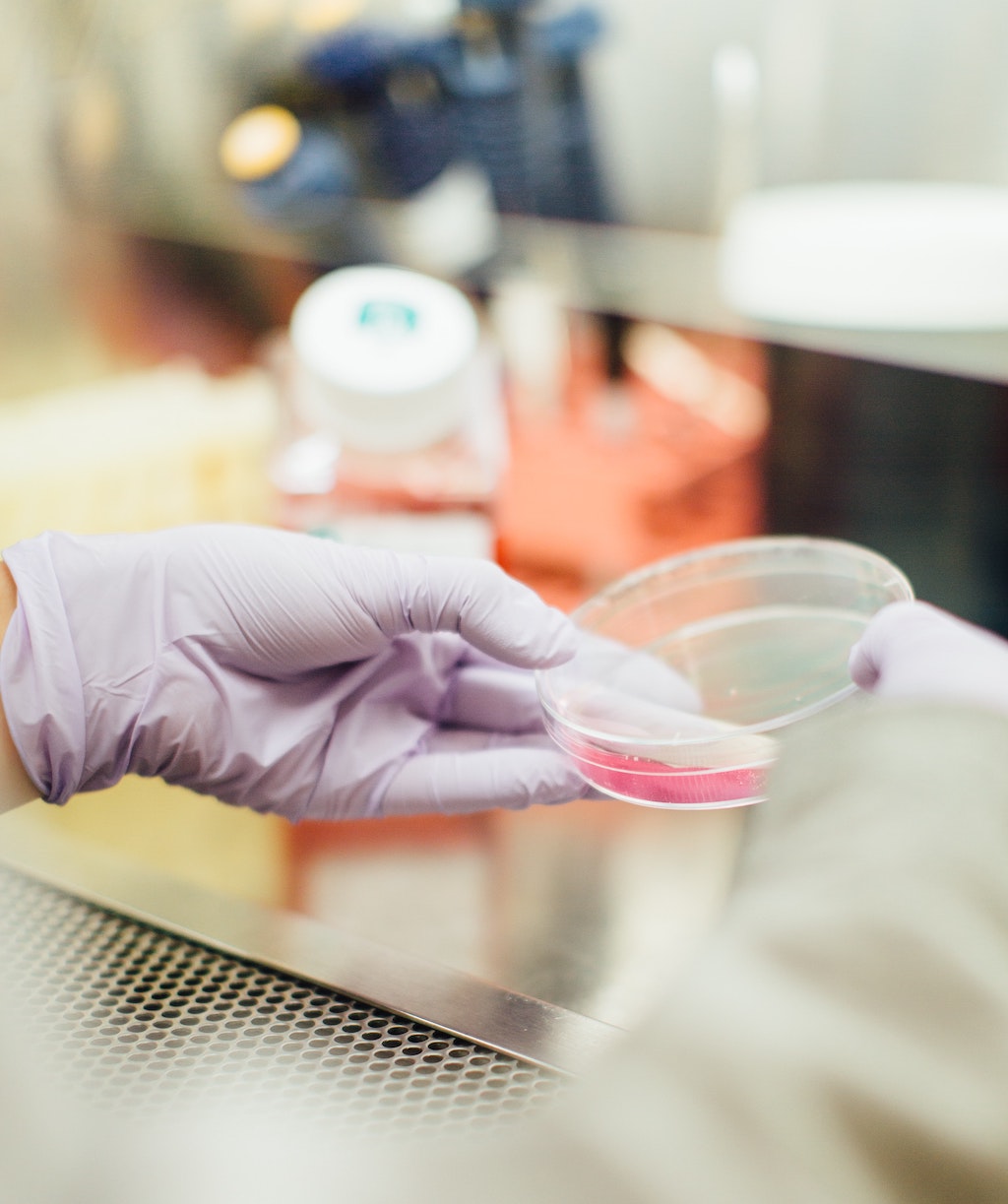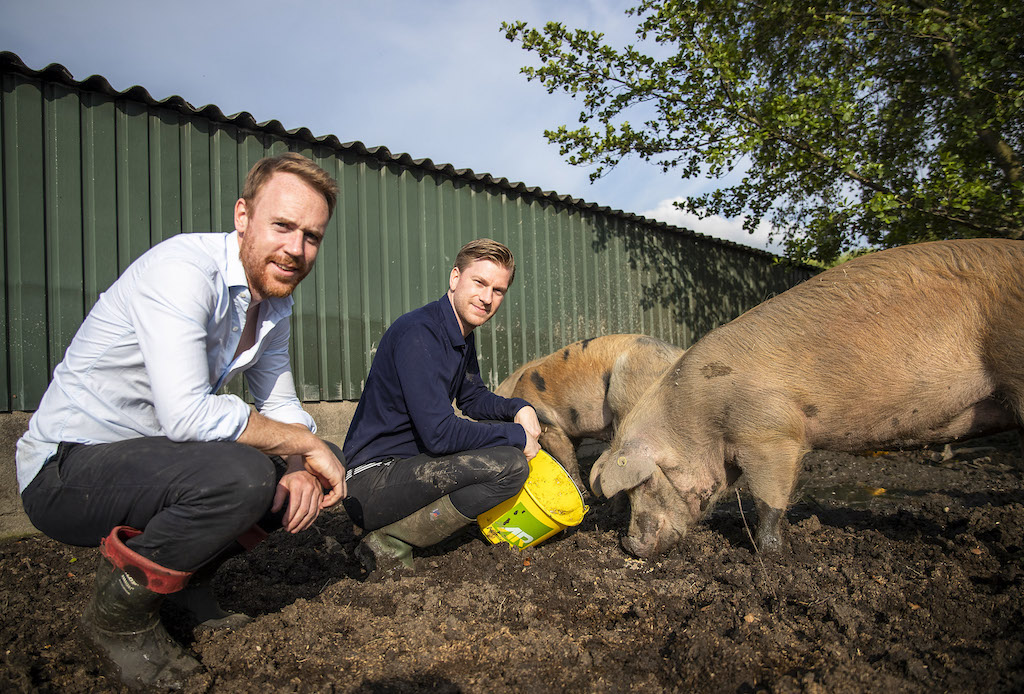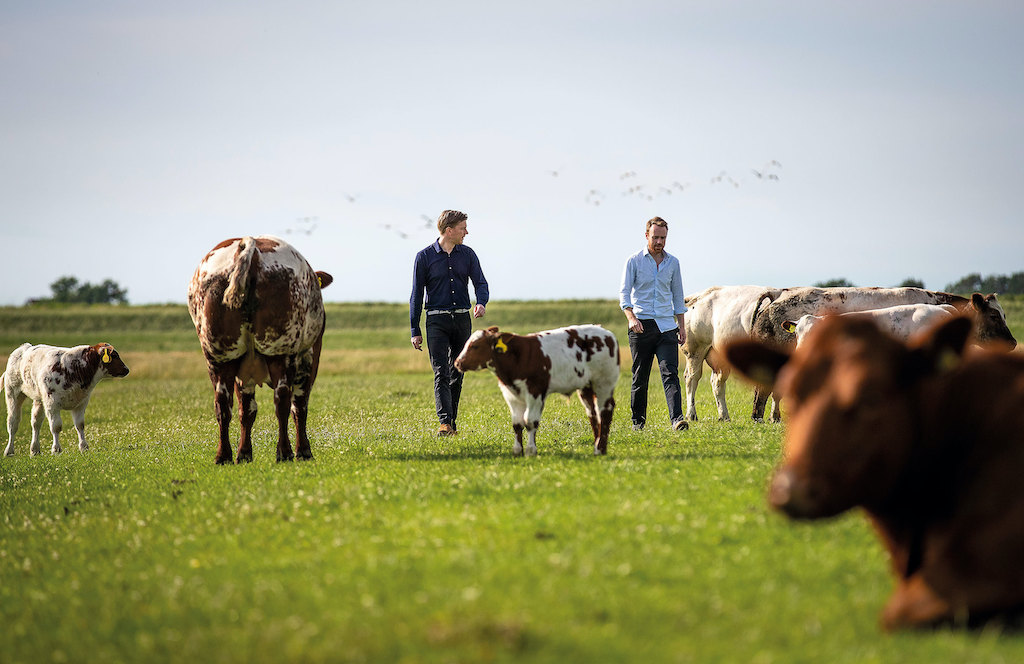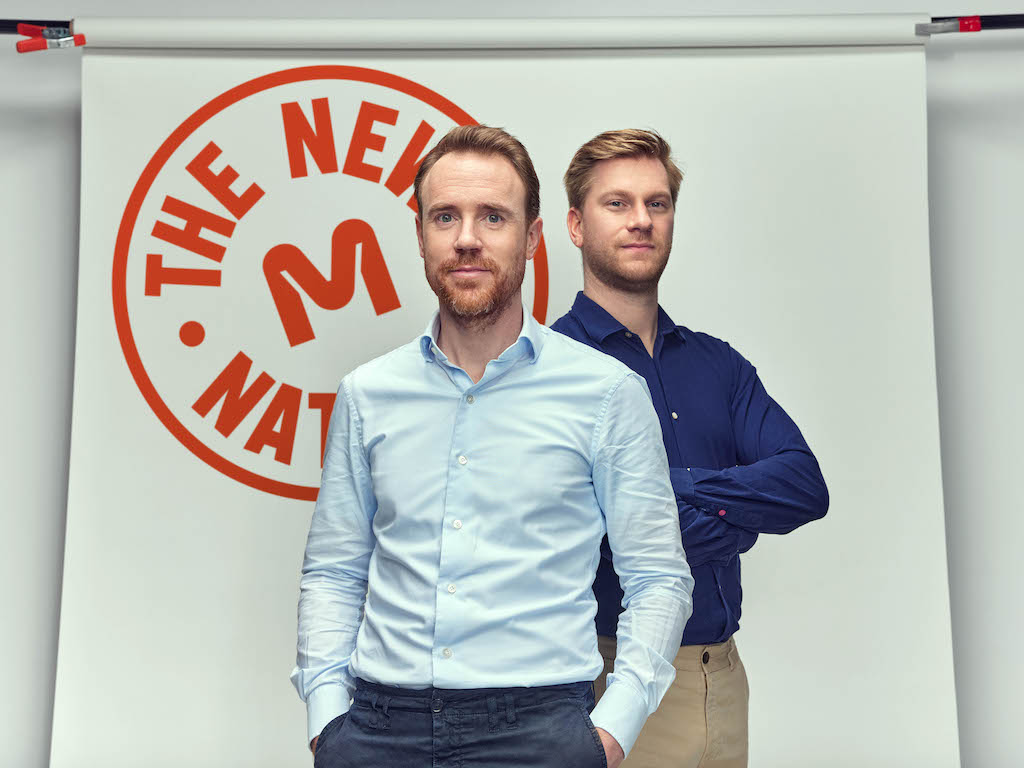DSM Teams Up With Cell-Based Startup Meatable For Affordable Growth Media
4 Mins Read
Cell-based startup Meatable has secured a partnership with Dutch multinational Royal DSM to co-develop affordable growth media. Aside from working on the cost-effective production of growth media, the two firms will also explore how to recreate meat-like textures in cell-based meat products.
Meatable has just entered into a new partnership with DSM, the Dutch health, nutrition, and ingredients giant. The new joint development agreement will see the two companies co-develop affordable growth media specifically for cultivating meat directly from cells. DSM and Meatable will also develop new ways to improve the texture and mouthfeel of cell-based meat products, in order to recreate the “full experience of eating actual meat”.
Growth media: a cost barrier

Growth media is the nutrient-rich liquid that contains all the crucial nutrients and growth factors to allow animal cells to multiply and grow in the lab.
At the moment, growth media accounts for a large proportion of the cost when it comes to producing cell-based proteins—around 50-90% of the total expenses. By making growth media more cost-efficient, cell-based companies are able to make their products more affordable to consumers, lowering the barriers to mass-market adoption.
Meatable says that its new partnership with DSM, which backed the startup via its venture arm in its latest $47 million Series A, will focus on exactly that—making affordable growth media that can be deployed for large-scale production.
“Joining forces with DSM, a global leader in biotechnology, will accelerate our research and development trajectory significantly,” said CEO and co-founder Krijn de Nood. “Together, we aim to develop the right nutritional ingredients in a fundamentally more cost effective and scalable process, to become the leading consumer choice for cultivated meat.”
Cell-based meat a ‘promising, innovative protein solution’

The cell-based protein industry is now grabbing global attention as a solution to the world’s broken food system, at the core of which is unsustainable animal agriculture, which drives nearly a fifth of the global GHG emissions.
Recent industry breakthroughs, including the world’s first commercial sale of cultured meat in Singapore last year, and the city’s latest approval of a cell-based meat manufacturing platform, has created greater optimism over the novel technology’s ability to disrupt the traditional livestock production.
For Dutch giant DSM, tapping into the cell-based sector now will put it ahead of the competition when alternative proteins that are directly cultivated from animal cells become more widely available.
“With the world population expected to grow to 10 billion people by 2050, a wide variety of solutions for more sustainable proteins will be needed,” commented DSM’s biotechnology centre VP Wim Klop. “With this joint development agreement DSM will contribute its unique competencies in biotechnology, such as fermentation, analysis and production scale-up to help make the science of cultivated meat a reality.”
In a statement, the company revealed it will also work with Meatable to improve the taste and texture of cultivated meat products. So far, Meatable has created prototypes for cell-based pork, but is now expanding its portfolio with cell-based beef.

Affordable growth media innovation
As the industry continues to await regulatory breakthroughs, more companies are now gearing up for the commercialisation stage, prompting more players to focus on lowering costs by developing more affordable growth media.
Aside from Meatable and DSM’s new partnership, Singapore-based TurtleTree has created an offshoot venture entirely dedicated to creating low-cost food-grade growth factors for other cell-based players. The firm recently launched a collaboration with US and China-based JSBio to supply basal media, as well as with Dyadic to produce high-yield affordable recombinant protein growth factors.
Other startups developing animal-free and low-cost cell-based media include London-based Multus Biotech, which is being supported by the UK’s innovation investment arm, and Canadian Y Combinator-backed firm Future Fields.
Lead image courtesy of Meatable.




